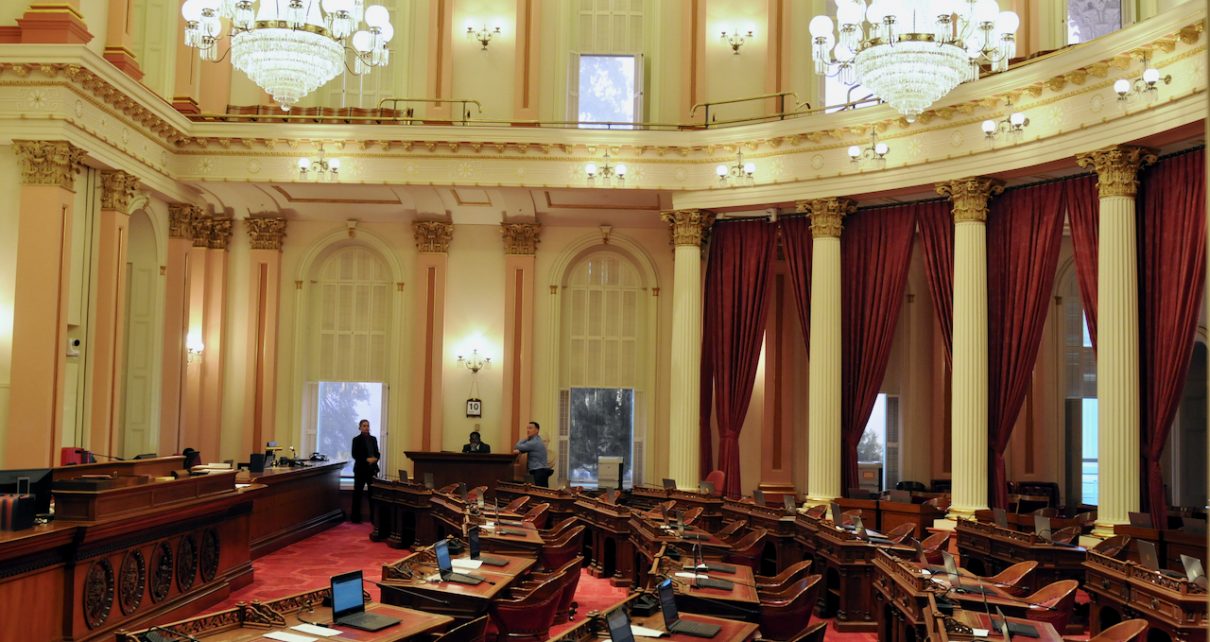
California Senate Chambers. (Photo: Kevin Sanders for California Globe)
Canon of Statutory Construction – Constitutional Avoidance
We start with the presumption that the Legislature drafts its bills carefully and intentionally
By Chris Micheli, October 30, 2022 9:20 am
For purposes of statutory construction, the courts and bill drafters use a series of “canons” to guide them. These include textual canons (intrinsic aids), linguistic presumptions and grammatical conventions, substantive canons, and extrinsic aids. It is impossible to list them all, but there are some common canons, and those are most useful for legislative drafting.
We start with the presumption that the Legislature drafts its bills carefully and intentionally. Because of this presumption, the usual approach of the judicial branch is to narrow statutes rather than expand them, and the courts are less activist in their interpretation.
There are also so-called “clear statement rules” that are canons that the U.S. Supreme Court has developed as an expression of “quasi-constitutional” values. For example, under the Constitutional Avoidance Canon, statutes will be construed, if possible, to avoid questions about their constitutionality.
In such cases, the court does not have to find that the statute is unconstitutional, only that it could raise a constitutional issue. Most commonly referred to as just the “avoidance canon,” it is when a possibly acceptable construction of a statute would raise a serious constitutional question or problem and so a court will construe the statute to avoid any such constitutional problem, unless that construction is plainly contrary to the intent of the legislative branch.
So, the fundamental principle of the Constitutional Avoidance Canon is that a court should interpret the Constitution only when it is strictly necessary to do so.
- Small Craft Harbors - August 1, 2025
- Minors and the Capacity to Contract - July 31, 2025
- California Proceedings for Conciliation - July 30, 2025







One thought on “Canon of Statutory Construction – Constitutional Avoidance”